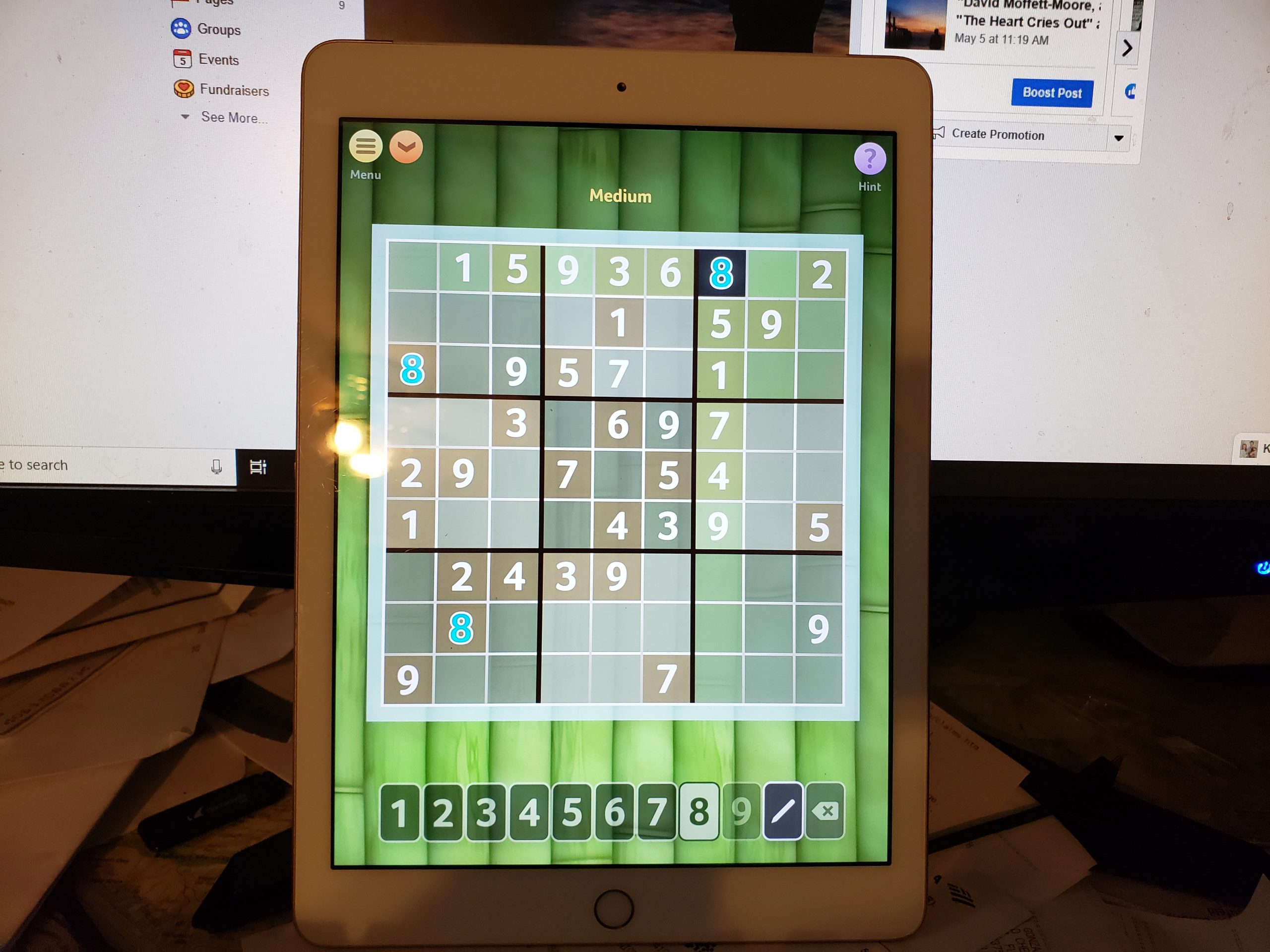Changing Perspectives
From time to time during my work day I’ll stop and play a (hopefully) quick game of Sudoku. For this purpose I usually choose an easier puzzle, one I can do quickly.
The purpose for a break like this is to unlock my brain, so to speak. When I’ve been working on a project too long, I can lose track of what I’m doing and become unproductive. There is activity, but no work. So I stop. Sudoku is just about right to distract my mind from what I was doing without tying me up for a long period of time.
This lets me refocus and reorder my thoughts, and I usually return to work ready to move forward.
The other day I was noticing something as I worked the puzzle. It’s not new. I just hadn’t thought of it.
In filling out the puzzle there are two ways I look at the board. I’m either looking for a list of possibilities for a particular space, or I’m looking for spaces that are blocked for certain numbers. I naturally do the first. The second usually works faster.
So why do the first?
In a word, habit. That’s how I’ve done it time out of mind.
Now I frequently switch tactics because I am failing to fill out what I know is a reasonably easy puzzle. It is unlikely that there is no clear move. On a complex puzzle other mental gymnastics might be useful.
Yet often I find myself running through rows, columns, and blocks repeatedly while finding nothing. Then suddenly I think, “Why am I doing this? Why am I not changing my perspective?”
Habit. Ingrained habit.
Changing perspectives can be hard. Learning to regularly look at something from a different perspective is even harder. Our habits intervene, and we can end up doing something repeatedly that isn’t working.
Usually when I change perspective on my Sudoku puzzle I almost immediately spot something that is obvious, but that I missed because I was in a rut.
Perhaps it would be a good idea to apply this to life. Try out a different point of view. Check for answers that are not on the list you had in mind.
It might help!

